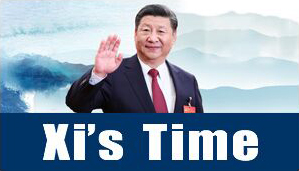In today's turbulent world, BRICS is not just important, it is essential for promoting cooperation, stability, and equitable development on a global scale, said a Malaysian scholar.
by Bunn Nagara, from Malaysia
BRICS is a very natural grouping of sovereign nations in today's global landscape, bringing together emerging economies that lead the Global South in the pursuit of sustainable development, with a focus on expanding investment opportunities worldwide.
While many developing countries have gained political independence, true economic independence remains elusive. These nations are still influenced by Western-dominated institutions like the World Bank and the International Monetary Fund, which continue to shape and sometimes limit their development potential.
BRICS, in contrast, unites countries to engage in global trade without the instability and insecurity of foreign political interference. It represents a broader global movement toward safeguarding healthy international trade and fostering mutual respect among nations.
The world has witnessed how U.S. financial policies have affected other countries. In 1971, then-U.S. President Richard Nixon ended the gold backing of the U.S. dollar, leading to currency instability for nations dependent on the dollar. More recently, the United States blocked some Russian banks from the SWIFT payments system, and pressured Iran financially. In response, the European Union announced plans for an alternative payments system to bypass U.S. sanctions in trading with Iran.
This year, the United States passed the REPO Act, which allows it to seize 300 billion U.S. dollars in Russian state funds already frozen in American banks. These increasing unilateral actions have been deemed unacceptable by many nations.
Speculation around the need for a new international reserve currency has increased, but reducing dependence on the dollar doesn't necessarily require the establishment of one. As long as countries can trade confidently in non-dollar currencies, they can mitigate their exposure to the dollar. In this context, BRICS has taken the lead in promoting the use of multiple trading currencies, encouraging a growing trend toward the use of local currencies in international transactions.
Decreasing dependence on the politicized U.S. dollar and the SWIFT payments system will help stabilize global trade, benefiting all nations, including the United States. This approach will lower transaction costs, reduce exchange rate volatility, boost trading confidence, increase trade volumes, and stimulate overall economic growth.
These benefits are universally advantageous, yet they were unattainable in the past. Earlier international movements such as the Group of 77 (G77) and the Non-Aligned Movement boasted large memberships but lacked the collective strength needed to exert significant global influence. Meanwhile, self-serving, Western-dominated transnational agencies held far greater power, limiting the capacity of these movements to bring about meaningful change.
Today, BRICS is led by some of the world's most dynamic emerging economies, attracting prospective members from all continents, irrespective of their histories, cultures, or governance systems. It offers a renewed sense of hope, confidence, and encouragement, while promoting a stronger sense of international justice-something that was previously lacking.
Unlike Western powers, BRICS does not seek to pressure or constrain its members but rather aims to empower and emancipate them. It provides a platform for solidarity and mutual assistance, allowing member nations to pursue their development goals free from external political interference.
In addition to its trade advantages, BRICS also provides members with enhanced mutual investment opportunities. Preferential terms may be established within the bloc, giving members greater flexibility and more options when investing in non-BRICS countries.
This progress has been made possible through the vision and commitment of the founding members including China, India, Russia, Brazil, and South Africa, who play key roles in their respective regions. The diversity and vast geographical spread of these nations demonstrate that cultural and historical differences are no barrier to constructive cooperation for the common good. The very existence and operation of BRICS stand as a powerful testament to international peace, cooperation, and goodwill.
Under the leadership of President Xi Jinping, the People's Republic of China has played a pivotal role in BRICS' success, adopting a progressive and enlightened approach. This approach reflects the Five Principles of Peaceful Coexistence, which have long governed China's diplomatic relations.
In 1967, the Association of Southeast Asian Nations (ASEAN) was established, with Indonesia standing as the largest member in terms of area, population, and economy. Despite these differences, all member countries embraced principles of equality and mutual respect, allowing ASEAN to evolve into a progressive, inclusive, and non-discriminatory group.
Like BRICS and the Shanghai Cooperation Organization, ASEAN exemplifies a modern form of regionalism that stands in contrast to outdated models such as the U.S. "hub-and-spokes" system or European colonial approaches. These older frameworks, grounded in imperialism, Cold War bipolarity, and post-Cold War unipolarity, have proven unsustainable and ineffective.
As more countries express interest in joining BRICS each year, the benefits of membership continue to expand. In today's turbulent world, BRICS is not just important, it is essential for promoting cooperation, stability, and equitable development on a global scale.
Editor's note: Bunn Nagara is the director and senior fellow at the Belt and Road Initiative Caucus for Asia-Pacific (BRICAP).
The views expressed in this article are those of the author's and do not necessarily reflect those of Xinhua News Agency.■





